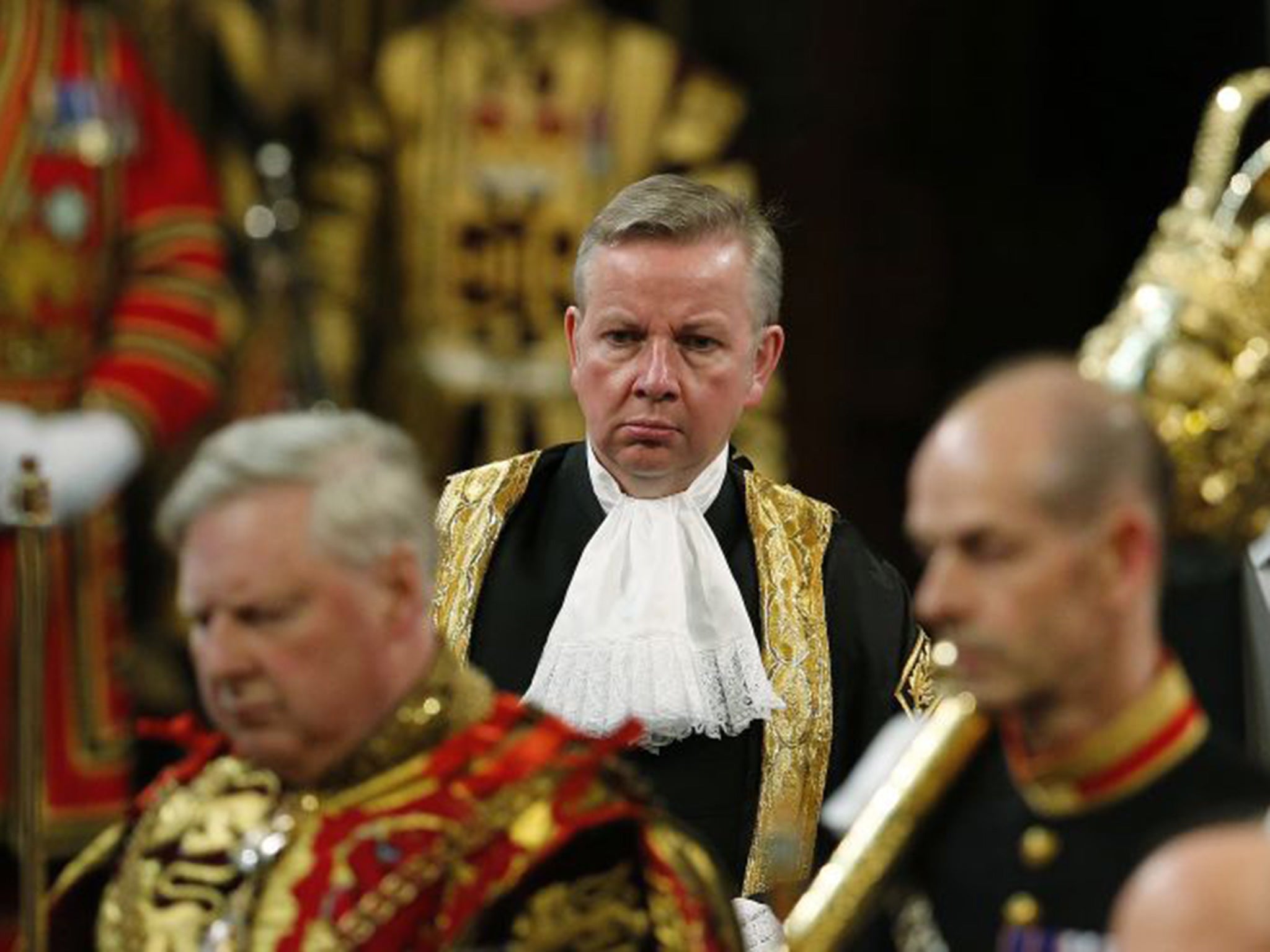Legal aid cuts: Plans on hold after law firms challenge new contracts system
A 'shambolic and unprofessional' bidding process involved the use of assessors who had next to no training

Michael Gove’s plans to reform legal aid by cutting the number of solicitors providing services in criminal courts is in tatters after the Ministry of Justice (MoJ) was forced to postpone a new system of contracts because of a rise in litigation by law firms claiming the entire bidding process was deeply flawed.
The Legal Aid Agency (LAA) planned to introduce new “crime duty contracts” in January. The MoJ previously said it had concluded a tendering and procurement process which reduced the number of legal aid contracts awarded to firms from 1,600 to 527. A reduction in legal aid work payments was a key part of the reform package.
The LAA claimed 519 of the successful bidders were happy with the new contracts but scores of legal challenges to the way the process has been run have now derailed the scheme. Legal challenges have been launched in 69 out of 85 procurement areas across England and Wales.
Although the MoJ said it “remained committed” to introducing the new contract system “at the earliest opportunity”, it is understood there are serious concerns inside the Treasury that the MoJ faces “expensive and lengthy legal battles” it is likely to lose.
“Michael [Gove] was politely asked to back off and see if a compromise deal could be found rather than risk tens of millions of pounds on risky litigation,” a Treasury source said. “The Treasury has other priorities. This isn’t one of them.”
News of the postponement came as a second LAA whistleblower emerged with serious criticisms of the bid process which he described as “shambolic and unprofessional.”

Paul Staples, who has been involved in many public procurement exercises involving local authorities, police and schools, often in senior management roles, revealed he had less than an hour’s training before he began assessing the duty solicitor bids. “From day one I wasn’t happy with the process. I was of the opinion that this was not a professional way of doing things. There were questions from the start,” he said.
His criticisms echo those of former LAA senior manager Freddie Hurlston, who was also a bid assessor and who told the Law Society the tender process was “botched” and the LAA was “overwhelmed” by it.
In Parliament, Justice Secretary Michael Gove dismissed MPs’ questions about Mr Hurlston as “merely one voice”.
Now Mr Staples, a bid assessor with 20 years’ experience of the public procurement process, has also gone public with his criticisms. “There was very little concern for quality. I would go so far as to say quality wasn’t even part of the equation,” Mr Staples told the website LegalVoice.
Several other assessors complained privately to him, he said. “It was only a matter of time … they were driven like slaves,” he said. Only one of the assessors he met had previous procurement experience.
“On day three, we were told the process was falling behind and the daily quota increased from 30 to 35 answers,” he said. Assessors were offered treats – Snickers or Mars chocolate bars – if they hit their bid assessing targets. “If we didn’t reach quota for the date there was a serious chance our hourly rates would be cut and our roles terminated,” he said. “There was a whiteboard where the results were recorded. At one stage someone hit 50-plus. We were filled with incredulity.”
Mr Staples was then moved to a second role for which he was given no training and was expected to achieve a target of 70 answers a day.
He was later asked to leave because the management felt he was not covering enough cases.
When the MoJ dismissed Mr Hurlston’s criticisms as unrepresentative, Mr Staples said he thought they were “trying to smear him”. “We were full of admiration [for him] for going public. He captured everything that was going in the MoJ at that time. We couldn’t have put it any better ourselves,” he said.
The Criminal Law Solicitors’ Association (CLSA) said it was not surprised that the new contracts were being postponed. The CLSA said there were “serious flaws” in the system including allegations that staff hired by the LAA were not professionally equipped to scrutinise the formal bids from law firms. Some assessors, hired via a high street recruitment firm, were paid £9.30 an hour to vet the law firm’s applications despite having no experience of legal aid work or the law more widely.
Mark Fenhalls QC, chairman of the Criminal Bar Association, said that as the Gove reforms represented an “existential struggle” for many high-quality firms, which recognised that their “whole businesses are about to be destroyed or changed beyond recognition”, then the legal battle against the MoJ would hard fought.
The LAA blamed the legal challenges for the postponement. “A number of unsuccessful bidders have chosen to legally challenge our decisions,” said a spokesman. “There are now automatic injunctions on us proceeding with new contracts in a number of procurement areas until those legal challenges are resolved.”
Legal experts believe these legal challenges will last well beyond next April, raising serious question marks over the entire reform package Mr Gove inherited from his much criticised predecessor, Chris Grayling.
Bookmark popover
Removed from bookmarks